Text
Lanista Cassius Flavius , Augusta Flavius.
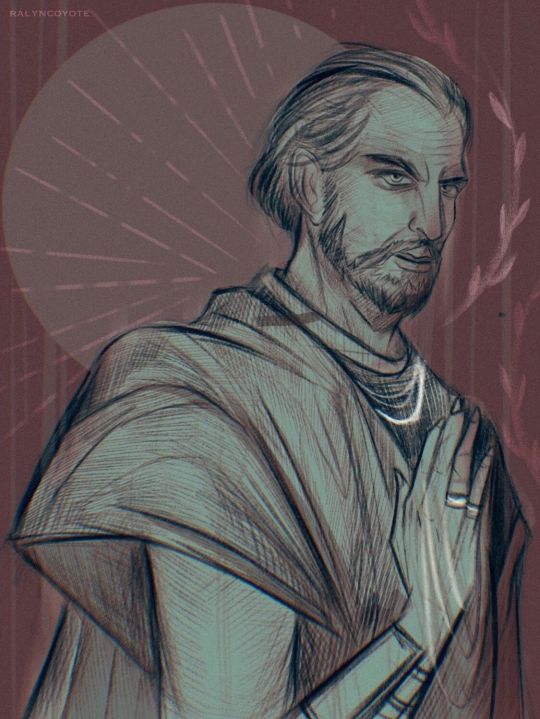

#artists on tumblr#rc artworks#rc gc#rc gladiator chronicles#gladiator chronicles#rc fanart#rc#romance club fanart#romance club#rc augusta#Cassius Flavius#dark art
45 notes
·
View notes
Text
The Ides of March have come.... But not gone
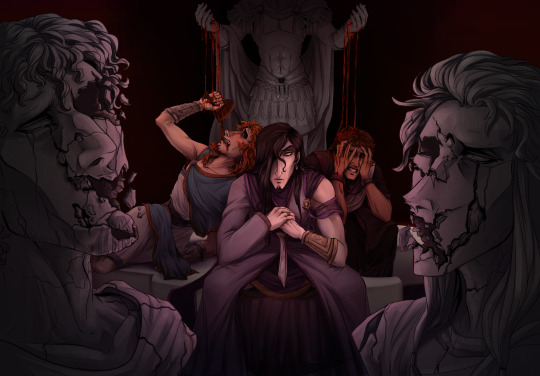
Ides 2022 repost because I worked ceaselessly on this
Starting from Left to Right: Marullus, Casca, Cassius, Brutus, and Flavius
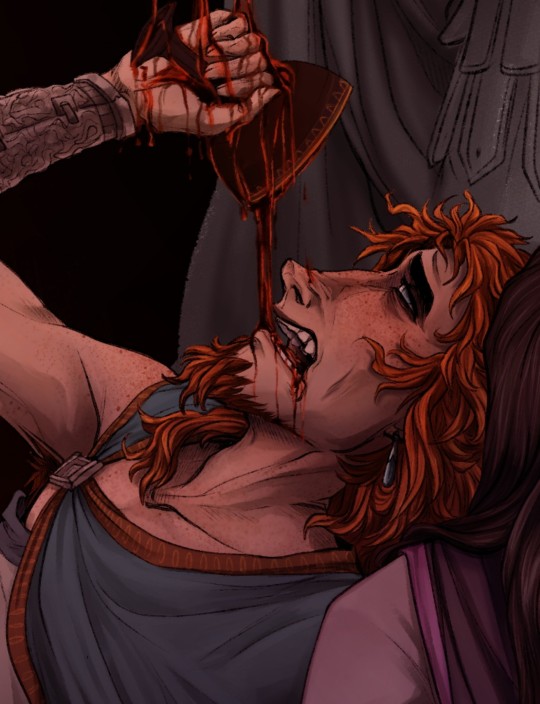

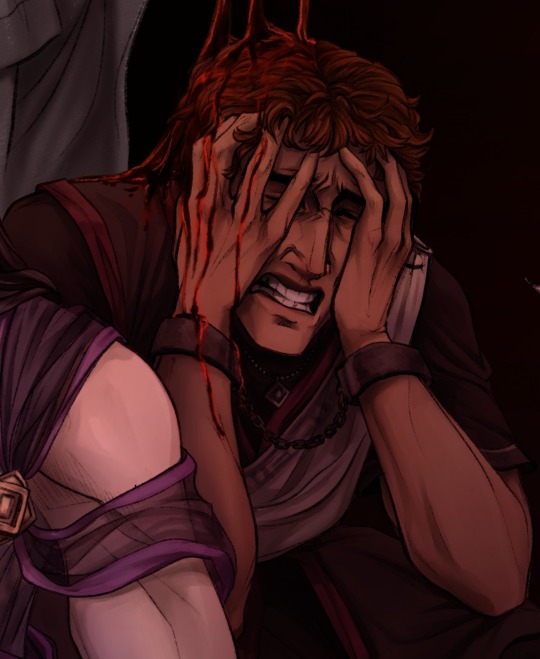
#julius caesar#republic comic#beware the ides of march#historical fiction#ides of march#gaius epidius marullus#publius servilius casca longus#gaius cassius longinus#marcus junius brutus minor#marcus junius brutus#lucius caesetius flavus#marullus#casca#cassius#brutus#flavius#caesar#symbolism#cw: dark content#cw: blood#julius caesar art#adaptation#ancient roman#ancient rome#roman#late roman republic#roman republic#the ides of march#oc#lgbt+
27 notes
·
View notes
Text
Credit to abraxas-calibrator OBVIOUSLY. Someone posted it on insta and I couldn't resist
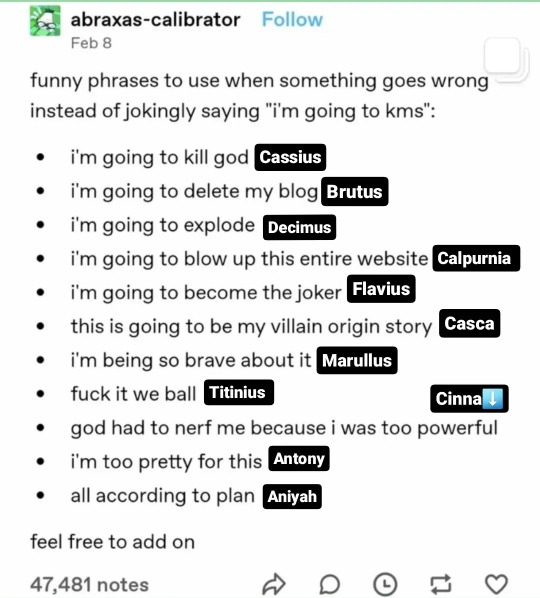
#julius caesar#cassius#brutus#decimus#calpurnia#flavius#casca#marullus#titinius#cinna#antony#aniyah#gaius cassius longinus#marcus junius brutus#calpurnia pisonis#lucius caesetius flavus#lucius cornelius cinna#publius servilius casca longus#gaius epidius marullus#marcus antonius#aniyah the soothsayer#decimus junius brutus albinus
30 notes
·
View notes
Photo

Didius Julianus
Didius Julianus was Roman emperor from March to June 193 CE. On March 28, 193 CE Roman Emperor Pertinax was assassinated by the Praetorian Guard, and like his predecessor Commodus, he left no apparent successor. Two possible claimants presented themselves to the Guard. These “protectors” of the imperial throne had vowed that no new emperor would be chosen without their approval and an “auction” ensued, following which, the throne was finally awarded to the highest bidder - Didius Julianus, a former commander, governor, and consul.
Early Life
Marcus Didius Julianus was born on January 30, 133 CE to Quintas Petronius Didius Severus of Milan and Aemilia Clara. He was raised in the home of Marcus Aurelius's mother, Domitia Lucilla. The educational advantages he received there enabled him to rise through the imperial ranks and become a successful commander in Germany, the governor of Lower Germany, and, during the time of Emperor Pertinax, a senator and co-consul. Unfortunately, his career briefly stalled when he and several other commanders were recalled to Rome by Emperor Commodus, and he was forced to temporarily retire. Although no proof exists, it was suggested that he may have been part of the conspiracy to assassinate the fallen emperor.
With the death of Emperor Pertinax, Julianus decided to use his vast wealth to buy the throne, outbidding the prefect of Rome and Pertinax's father-in-law, Titus Flavius Suspicianus. To further secure his claim, he convinced the Guard that Titus might seek revenge for the death of his son-in-law. In his Roman History, Cassius Dio spoke of the auction, “Didius Julianus, at once an insatiable money-getter and wanton spendthrift …always eager for revolution and hence had been exiled by Commodus…when he heard of the death of Pertinax, hastily made his way to the camp, and, standing at the gate of the enclosure, made bid to the soldiers for the rule over Rome.”
In his The Decline and Fall of the Roman Empire, Edward Gibbon also wrote about the auction, “This infamous offer, the most insolent excess of military license, diffused as universal grief, shame and indignation throughout the city. It reached at length the ears of Didius Julianus.” Yet, according to Gibbon, it was not personal ego but his wife and daughter's suggestion that convinced him to pursue the throne. Gibbon added that as the Guard carried Julianus through the streets to the Senate, they paraded a man “whom they served and despised.” Herodian, in his History of the Roman Empire, spoke of Julianus's reception by the people of Rome. “No one, however, shouted the congratulations usually heard when emperors were accompanied by a formal escort; on the contrary, the people stood at a distance, shouting curses and reviling Julianus bitterly for using his wealth to purchase the throne.”
Continue reading...
20 notes
·
View notes
Text
The Antonian Reading List
Mark Antony: A Life by Patricia Southern (Highly recommended!)
Mark Antony: A Biography by Eleanor Goltz Huzar (Highly recommended!)
The Life and Times of Marc Antony by Arthur Weigall (Recommended)
Marc Antony: His Life and Times by Allan Roberts (Recommended)
Marc Antony by Mary Kittredge
Antony & Cleopatra by Patricia Southern
Antony & Cleopatra by Adrian Goldsworthy (By far the most negative book on Antony by a modern historian, the Cleopatra portion is better)
Mark Antony: A Plain Blunt Man by Paolo de Ruggiero (Recommended)
Mark Antony and Popular Culture: Masculinity and the Construction of an Icon by Rachael Kelly
Mark Antony's Heroes: How the Third Gallica Legion Saved an Apostle and Created an Emperor by Stephen Dando-Collins
A Noble Ruin: Mark Antony, Civil War and the Collapse of the Roman Republic by W. Jeffrey Tatum (Highly recommend!)
Mark Antony & Cleopatra: Cleopatra's Proxy War to Conquer Rome & Restore the Empire of the Greeks by Martin Armstrong
Actium and Augustus: The Politics and Emotions of Civil War by Robert Alan Gurval
The Roman Revolution by Ronald Syme (Recommended)
Octavian, Antony and Cleopatra by W. W. Tarn
Fulvia: Playing for Power at the End of the Roman Republic by Celia E. Schultz
Cleopatra: Last Queen of Egypt by Joyce Tyldesley (Highly Recommended!)
Cleopatra by Michael Grant (Highly Recommanded!)
Cleopatra: A Life by Stacy Schiff (Highly Recommended!)
Cleopatra - A Biography by D. Roller
Cleopatra and Antony by Diana Preston
Cleopatra by Alberto Angela (Recommended)
Cleopatra by Jacob Abbott
Cleopatra the Great by Joann Fletcher
Cleopatra and Egypt by Sally-Ann Ashton
Cleopatra and Rome by Diana E. E. Kleiner
Cleopatra Her History Her Myth by Francine Prose
Cleopatra Histories, Dreams, and Distortions by Lucy Hughes Hallett (Recommended)
Cleopatra’s Daughter Egyptian Princess by Jane Draycott
The Storm Before the Storm by Mike Duncan
SPQR: A History of Ancient Rome by Mary Beard (Good for beginners)
The Last Assassin: The Hunt for the Killers of Julius Caesar by Peter Stothard
Robicon by Tom Holland
Alesia 52 BC: The final struggle for Gaul (Campaign) by Nic Fields
Actium 31 BC: Downfall of Antony and Cleopatra (Campaign) by Si Sheppard
Pharsalus 48 BC: Caesar and Pompey – Clash of the Titans (Campaign) by Si Sheppard
Philippi 42 BC: The death of the Roman Republic (Campaign) by Si Sheppard
Mutina 43 BC: Mark Antony's struggle for survival (Campaign) by Nic Fields
The War That Made the Roman Empire: Antony, Cleopatra, and Octavian at Actium by Barry Strauss
The Battle of Actium 31 BC: War for the World by Lee Fratantuono
Rome and Parthia: Empires at War: Ventidius, Antony and the Second Romano-Parthian War, 40–20 BC by Gareth C Sampson
Rivalling Rome: Parthian Coins and Culture by Vesta Curtis
Classical sources:
Plutarch’s Lives
Cicero: Philippics, Ad Brutum, Ad Familiares
Appian, The Civil Wars
Dio Cassius, The Roman History
Suetonius, The Twelve Caesars
Flavius Josephus, The Jewish War
Livy, The Early History of Rome
Tacitus, Annals and Histories
Friction:
The Tragedy of Julius Caesar by William Shakespeare
The Tragedy of Antony and Cleopatra by Willian Shakespeare
All For Love or The World Well Lost by John Dryden
The Siren and the Roman – A Tragedy by Lucyl
Caesar and Cleopatra by George Berbard Shaw
Cleopatra (play) by Sardou
Antony by Allan Massie
I, Claudius by Robert Graves
I, Cleopatra by William Bostock
Cleopatra by H. Rider Haggard
Cleopatra by Georg Ebers
Kleopatra (Vol I & II) by Karen Essex
Last Days with Cleopatra by Jack Lindsay
The Memoirs of Cleopatra by Margaret George
When We Were Gods by Colin Falconer
The Masters of Rome series by Colleen McCullough
Caesar's Soldier: Mark Antony Book I by Alex Gough (Ongoing series)
The Antonius Trilogy by Brook Allen
The Last Pharaoh series by Jay Penner
Throne of Isis by Juith Tarr
Hand of Isis by Jo Graham
Woman of Egypt by Kevin Methews
The Ides of Blood 01-06 (Comics)
Terror - Antonius En Cleopatra (Erotic yet pure love, Dutch comics)
Cleopatra - Geschiedenisstrip (Dutch comics)
Les Grands Personnages de l Histoire en Bandes Dessinees – Marc Antonie (French comics)
Les Grands Personnages de l Histoire en Bandes Dessinees – Cleopatre (French comics)
Les Grands Personnages de l Histoire en Bandes Dessinees – Julius Caesar (French comics)
Cléopâtre (French Manga)
Ils Ont Fait L'histoire - Cléopâtre (French Graphic Novel)
#mark antony#marc antony#marcus antonius#cleopatra#cleopatra vii#antony and cleopatra#rome#ancient rome#roman history#roman republic#roman empire#books#book recommendations#reading list#to read list#history
99 notes
·
View notes
Text

What did Roman Empire pagan soldiers think of fighting under Constantine and Christianity?
Probably not very much.
The Roman military was a world of its own. More than today, soldiers had their very identity shaped by the institution and people they served. Upon enlisting, they swore allegiance to the emperor and received new names as his servants — Valerius during the tetrarchy and Flavius under Constantine. Those who didn’t speak Latin were pushed to acquire a basic grasp of it, pretty much like the French Foreign Legion of today. Starting from the late republican period, Roman soldiers were accustomed to receiving salaries, booty and pensions from their commanders, not the state in an abstract sense. Under the empire, loyalty often lay with the emperor, as long as he was perceived as strong.
In that frame, Constantine never lost the faith of his men thanks to his talents, accomplishments and image. It surely helped that he was Constantius Chlorus’ son, but dynastic feelings were not so strong in the 4th c. What really mattered was that he was a victorious imperator, with plenty of experience both before and after his ascension. His CV included wars against, and victories over, foreigners (Franks, Goths, Alamanni) and rival emperors (Maxentius, Licinius) alike. That kept soldiers satisfied and himself secure on the throne. Besides, Constantine took care to associate his military exploits with the Christian God. On the contrary, his sons failed to live up to his legacy and had to face claims by men like Magnus Magnentius and Julian.
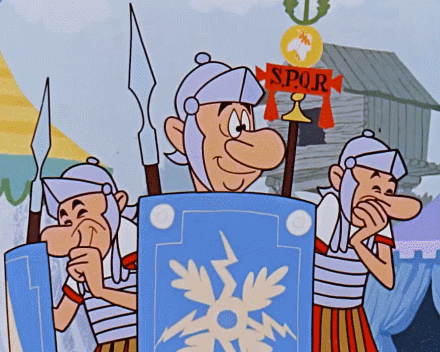
Another thing to consider is the role of religion in the then Roman military. In general, early Christianity wasn’t unanimously for or against military service, hence a decent minority of soliders were Christians even before Constantine. In the late 3rd c., you could find Christians like St. Marcellus holding even the rank of centurion. The statesman Cassius Dio is reported to have spoken of Christians in the comitatus of all four original tetrarchs. Cases of individual disobedience cannot be excluded, of course, but the military was, above all, a state mechanism. Under Diocletian, they persecuted Christians; under Constantine, they fought the Donatists and may have even destroyed the Asclepieion at Aegae, Cilicia.
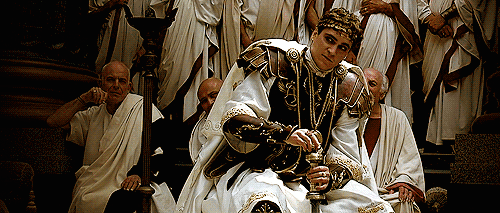
On his part, Constantine didn’t adopt Christianity the way most people after his time imagine(d). There was a long, gradual process, for the most part inscribed into the norms of late antiquity. Nomenclature and visual language were preserved to a considerable extent. Separate Christian and non-Christian prayers are reported to have been taking place at the same time. At some point in the 320s, a group of veterans greeted Constantine with the traditional “May the gods preserve you for us” salute. Two elite army units, Diocletian’s Jovians and Maximian’s Herculians, were not rebranded, although their names recalled the gods Jupiter and Hercules whom the late tetrarchs associated themselves with.
With the benefit of hindsight, we now know that the dynamics of that complex situation ended up favouring Christianity — if anything, all of Constantine’s successors were Christians except for Julian. That, however, should not be taken out of context. Few have a panoramic view of their time or the acumen to predict the future, and the provincials who made up the bulk of the late Roman military were not among them. Even if they were, though, they may not have had particularly strong feelings about any potential outcome. At the same time, various (quasi-)henotheistic traditions like the cult of Sol Invictus and Mithraism were around. The period was transitional, hence quite fluid.
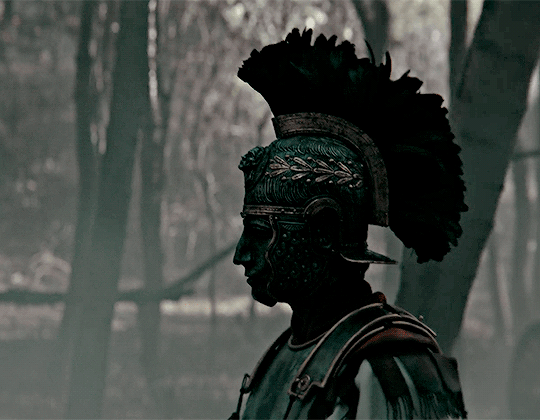
#kemetic dreams#european#europeans#western europe#christianity#roman military#henotheistic traditions#cult of sol invictus#mithraism#christians#constantine
10 notes
·
View notes
Text
Character Profile!
~Stortia

"On my planet, the shorter the order, the greater the chance of survival."
Book: Gladiator Chronicles
Stortia is a Gladiatrix that works for the Lanista Cassius Flavius at his gladiatorial school. Her and her fellow Gladiators, Gars, Graut, and Hotch are responsible for training the novice Gladiators. When there are injuries at the school Stortia treats them. She also regulates and monitors the gladiator's implants. Stortia is described as dangerous and unpredictable but has occasionally shown that she is not as tough as she wants people to believe. Stortia is quick to protect her fellow gladiators and tends to put their safety before her own.
Interesting Fact:
Stortia was born on planet Ferit, a world covered with lush vegetation. Its harsh climate and hostile flora and fauna left their marks on its inhabitants. Instead of uniting, the tribes resolved their many disputes through brute force, capturing and conquering each other. Thanks to this, Ferit's inhabitants retain a cult not only of physical strength but also of valor, which is still sung of around massive campfires.
Posted by RC on Facebook
Additional and more detailed info on the Wiki | Stortia
RC Character’s Profile Masterlist
#romance club#romance club game#клуб романтики#rc stortia#rc gladiator chronicles#rc character profile#character profile masterlist#character profile#rc stortia profile#rc gc#rc profile
17 notes
·
View notes
Text
Reading 6: Saturday, March 25
The sixth read-through of Julius Caesar.
(Most of you are double or triple cast, so double check which lines you have to read.) You can look up the lines of the characters here. The names listed below all go with the Folger Edition.
Please submit your confirmation or any request to understudy here. If you’re in any doubt, please ask.
Times and time zones:
EST (US): 2:00 PM CST (US): 1:00 PM MST (US): 12:00 PM PST (US): 11:00 AM GMT (UK): 6:00 PM AEDT (AU): 5:00 AM (Sunday, March 26)
Leader: @actorinfluence
Cast:
Marcus Brutus: @bottom-of-the-riverbed Caius Cassius, Carpenter: @lesbiancassius Mark Antony, Metellus Cimber, 3rd Soldier, Claudius: @girlantony Julius Caesar, Popilius Lena, 1st Soldier, Dardanus, Caius Ligarius: @actorinfluence Casca, Publius, 4th Pleb, 2nd Soldier, Volumnius, Messenger: @thestorywitch Portia, Servant, Pindarus, Strato, Varro: @sunnnymornings Lucilius, Lucius, Artemidorus, 1st Pleb/All, Flavius: @moo-the-monster Decius Brutus, Titinius, 3rd Pleb, Clitus, Cobbler, Lepidus: @ingridarcher Messala, Soothsayer, Trebonius, 2nd Pleb, Marullus, Cicero: @bellabugizy Octavius, Cinna, Cinna the Poet, Calphurnia, Young Cato, Another Poet: @agender-gidim
Please submit your confirmation here. - liking/reblogging this post does not count!
Read the Guidelines. To avoid the differences between editions that make for confusion and missed cues, please use the Folger edition of Julius Caesar during the read-through.
Be on time, be prepared, and make sure you know which lines to read. Good luck!
8 notes
·
View notes
Text
"But one may justly ascribe this act to Cherea; for although many concurred in the act itself, yet was he the first contriver of it, and began long before all the rest to prepare for it, and was the first man that boldly spake of it to the rest; and upon their admission of what he said about it, he got the dispersed conspirators together; he prepared every thing after a prudent manner, and by suggesting good advice, showed himself far superior to the rest, and made obliging speeches to them, insomuch that he even compelled them all to go on, who otherwise had not courage enough for that purpose; and when opportunity served to use his sword in hand, he appeared first of all ready so to do, and gave the first blow in this virtuous slaughter; he also brought Caius easily into the power of the rest, and almost killed him himself, insomuch that it is but just to ascribe all that the rest did to the advice, and bravery, and labors of the hands of Cherea." - Flavius Josephus
I love how he describes the ways in which Chaerea was competent. Cassius is haunting this.
0 notes
Text
Events 3.6 (after 1940)
1943 – Norman Rockwell published Freedom from Want in The Saturday Evening Post with a matching essay by Carlos Bulosan as part of the Four Freedoms series. 1943 – World War II: Generalfeldmarschall Erwin Rommel launches the Battle of Medenine in an attempt to slow down the British Eight Army. It fails, and he leaves Africa three days later. 1943 – World War II: The Battle of Fardykambos, one of the first major battles between the Greek Resistance and the occupying Royal Italian Army, ends with the surrender of an entire Italian battalion, the bulk of the garrison of the town of Grevena, leading to its liberation a fortnight later. 1944 – World War II: Soviet Air Forces bomb an evacuated town of Narva in German-occupied Estonia, destroying the entire historical Swedish-era town. 1945 – World War II: Cologne is captured by American troops. On the same day, Operation Spring Awakening, the last major German offensive of the war, begins. 1946 – Ho Chi Minh signs an agreement with France which recognizes Vietnam as an autonomous state in the Indochinese Federation and the French Union. 1951 – Cold War: The trial of Ethel and Julius Rosenberg begins. 1953 – Georgy Malenkov succeeds Joseph Stalin as Premier of the Soviet Union and First Secretary of the Communist Party of the Soviet Union. 1957 – Ghana becomes the first Sub-Saharan country to gain independence from the British. 1964 – Nation of Islam leader Elijah Muhammad officially gives boxing champion Cassius Clay the name Muhammad Ali. 1964 – Constantine II becomes the last King of Greece. 1965 – Premier Tom Playford of South Australia loses power after 27 years in office. 1967 – Cold War: Joseph Stalin's daughter Svetlana Alliluyeva defects to the United States. 1968 – Three rebels are executed by Rhodesia, the first executions since UDI, prompting international condemnation. 1970 – An explosion at the Weather Underground safe house in Greenwich Village kills three. 1975 – For the first time the Zapruder film of the assassination of John F. Kennedy is shown in motion to a national TV audience by Robert J. Groden and Dick Gregory. 1975 – Algiers Accord: Iran and Iraq announce a settlement of their border dispute. 1984 – In the United Kingdom, a walkout at Cortonwood Colliery in Brampton Bierlow signals the start of a strike that lasted almost a year and involved the majority of the country's miners. 1987 – The British ferry MS Herald of Free Enterprise capsizes in about 90 seconds, killing 193. 1988 – Three Provisional Irish Republican Army volunteers are shot dead by the SAS in Gibraltar in Operation Flavius. 1992 – The Michelangelo computer virus begins to affect computers. 2003 – Air Algérie Flight 6289 crashes at the Aguenar – Hadj Bey Akhamok Airport in Tamanrasset, Algeria, killing 102 out of the 103 people on board. 2008 – A suicide bomber kills 68 people (including first responders) in Baghdad on the same day that a gunman kills eight students in Jerusalem. 2018 – Forbes names Jeff Bezos as the world's richest person, for the first time, at $112 billion net worth. 2020 – Thirty-two people are killed and 81 are injured when gunmen open fire on a ceremony in Kabul, Afghanistan. The Islamic State claims responsibility for the attack.
0 notes
Text
REPOSTING ALL MY OLD IDES OF MARCH ARTWORKS BECAUSE I AM SHAMELESS
2023
Left to Right: Cinna, Casca, Decimus, Brutus, Metellus, G.Casca, Titinius, Cassius. (Back: Antony, Calpurnia, Caesar life-evacuated)

2022
Left to Right: Marullus bust, Casca, Cassius, Brutus, Flavius bust. (back Caesar statue)
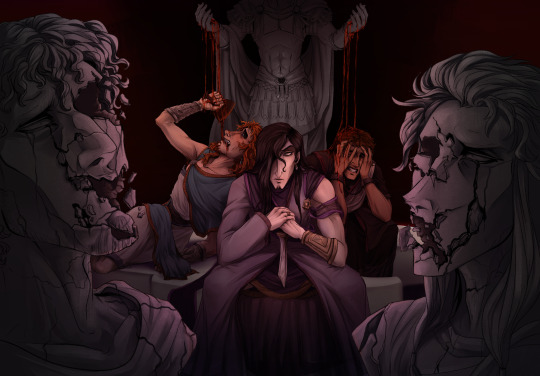
2021
Casca, (back: Flavius and Marullus)
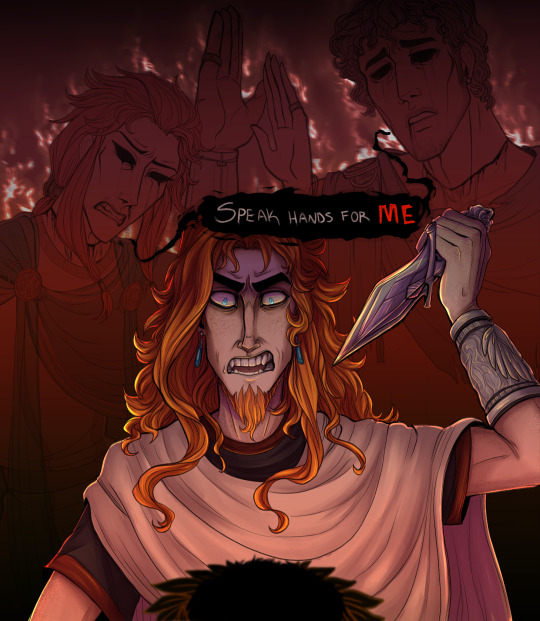
2020
Left to Right: Antony, Casca, Cassius

2019
Aniyah, the soothsayer

Cassius

Left to Right: Cinna, Brutus, Cassius, Casca

2018
Left to Right: Brutus, Cassius, Casca (back: life-evacuated Caesar)

Left to Right: Cinna, Casca, Cassius
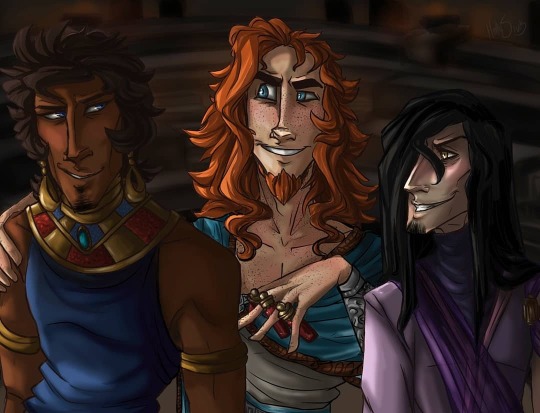
Caesar, and Aniyah the soothsayer

Caesar and Casca

2017
Casca D(st)abbing on Caesar

Left to Right: Cassius, Caesar, Cinna, (front: Brutus, back: Casca)

Hope you enjoyed the throwback!! I am filled with such nostalgia🥹 If you're new to this holiday, welcome! It's always nice seeing others discovering it lol, even just in passing.
(PS. Incase anyone is confused) These are my characters from my ( VERY MUCH WIP) graphic novel: Republic. It's historical fiction around the time of Caesars death and the downfall of the Roman Republic, with homages to Shakespeare's play, as well as a bit of my own plot points, and explorations of possible motives, etc, especially involving certain figures whose fates and lives were not set in stone in factual history. I like to have a good ounce of freedom to write and explore different angles and nuance of historical existence. Now, the character designs may look ahistorical and that's because they are- purposely.☺️ I want memorable, history-adjacent designs, silhouettes, etc that match the characters' individuality and vibe. I also want to have FUN while drawing and writing this. The story is grounded historically, but I take certain liberties because it is an epic tragedy, not non-fiction!😌 Anyways, if you have any questions feel free to send in asks, and if not, have a good rest of the day and I'll see y'all next year!!😈🗡
#julius caesar#republic comic#beware the ides of march#ides of march#casca#cassius#cinna#brutus#metellus#marullus#flavius#decimus#antony#g.casca#calpurnia#aniyah#titinius
12 notes
·
View notes
Text

made this on a whim but idk what day to make this a part of lmao
107 notes
·
View notes
Text
‼️nsft warning
@gc-appreciationweek day six: side characters
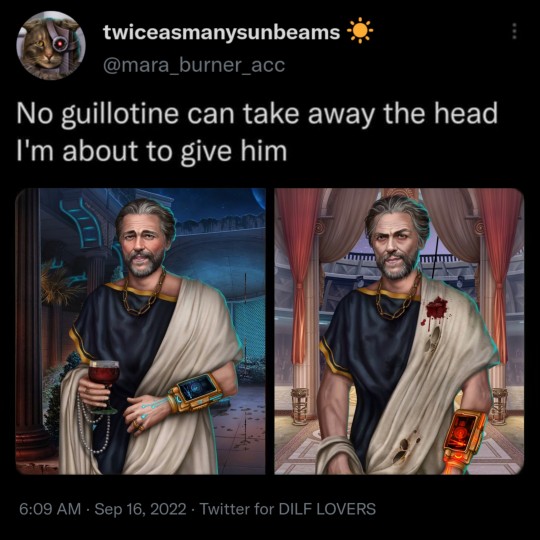

#im sorry#but i CANT BE THE ONLY ONE#cassius served c*nt and died...#romance club#RCGCAW#gladiator chronicles#cassius flavius
41 notes
·
View notes
Photo

The Bar-Kochba Revolt
The Bar Kochba Revolt (132–136 CE) was the third and final war between the Jewish people and the Roman Empire. It followed a long period of tension and violence, marked by the first Jewish uprising of 66-70 CE, which ended with the destruction of the Second Temple, and the Kitos War (115-117 CE). In many ways, the Bar Kochba Revolt differed markedly from its predecessors. For the first time, the Jews presented a united front against Roman forces and fought underneath a single charismatic leader, the eponymous Simon Bar Kochba (also given as Shimon Bar-Cochba, Bar Kokhba, Ben-Cozba, Cosiba or Coziba). It was marked as well by strong religious passions, with many apparently believing that Bar Kochba was the promised messiah who would lead the Jewish people to final victory against their enemies.
In its initial stages, the revolt was surprisingly successful and may have resulted in the destruction of an entire Roman legion. It is possible that the rebels regained control of the city of Jerusalem, and they must have held large portions of ancient Judea. The Romans, however, regrouped and adopted a scorched-earth strategy that ultimately extirpated the rebels and laid waste to the country. The war shattered Judean society and led to far-reaching demographic and political changes, with the majority of the Jewish population of the province killed, enslaved, or exiled, and their national hopes definitively crushed. The Jewish people would not regain their political independence until the Zionist era and the establishment of the State of Israel in 1948 CE.
The Problem of Sources
Unlike the revolt of 66 CE, the historical sources on the Bar Kochba Revolt are scanty at best. The war had no chronicler such as Josephus Flavius, at least none whose work has survived. The primary non-Jewish sources are an epitome of Cassius Dio's Roman History and a handful of lines by the ecclesiastical historian Eusebius, the bishop of Caesarea. The war is also briefly mentioned by the Church father Jerome. While by no means comprehensive, these sources do provide several important details.
The Jewish sources are not per se historical and, while also scanty, are found throughout the rabbinical literature of the period and after, in particular, in the Jerusalem and Babylonian Talmuds. While they are often clearly legendary and unreliable in nature, they do paint a general picture of the Jewish experience of the war and its aftermath.
In addition, several important archaeological finds have shed light on certain aspects of the revolt. Coins minted while Judea was temporarily freed from Roman rule indicate the existence of an independent Jewish state for a brief period. In the 1960s CE, a cave in the Judean desert was found that likely once housed refugees from the revolt. Called the “Cave of Letters,” it contained a cache of documents that included several letters from Bar Kochba himself, which shed unprecedented light on his personality and style of rule.
Continue reading...
53 notes
·
View notes
Text
Things To Be Expected At A Flavius Family Dinner
Mr and Ms Flavius arguing over what wine to pair with the meal even though they end up bringing both
Mallia deciding right here and now at dinner is the best time to reveal her newest plan to become famous
Canus attempting to belch the Garlemald anthem repeatedly
The twins Dossenia and Vesnia asking guests to tell which one of them is which except they get intercepted by Titus who answers for them and laughs
Marcus having an existential crisis over his day old crush after just getting over one a week prior
Gallio wondering how he became a part of this family
Ms Flavius reminding the younger boys that Titus is older and gets a larger portion, followed by Titus sticking his tongue out at them
Mallia threatening, "As soon as I'm old enough I'm leaving this family!" even though she's more than old enough to leave already...
Dossenia and Vesnia running around the tables at full speed after eating, prompting Ms Flavius to insist they use all that energy to help clean...they get suddenly tired each time.
Marcus saying he would help clean but he is still healing for his recent heartbreak
Gallio taking his own dishes to the kitchen and cleaning them so he can return to his room
Titus helping his mother clean after everyone else has disappeared and her asking him when is the next time Vivian is coming for dinner and to be sure to let her know ahead of time so she makes something he likes
1 note
·
View note
Text
Character's Profile!
~Cassius Flavius

Book: Gladiator Chronicles
An important Roman politician, Cassius is the patriarch of a great house and the owner of many gladiator slaves.
Interesting Fact:
Cassius Flavius is the only citizen of New Rome who was appointed to the post of consul three times. During his second term, he helped Caesar save the empire from imminent death and turn the tide of the war with the United Army.
Posted by RC on Facebook
RC Character's Profile Masterlist
#romance club#romance club game#клуб романтики#romance club characters#character profile masterlist#rc cassius flavius#cassius flavius profile#rc gladiator chronicles#rc gc#character profile
5 notes
·
View notes